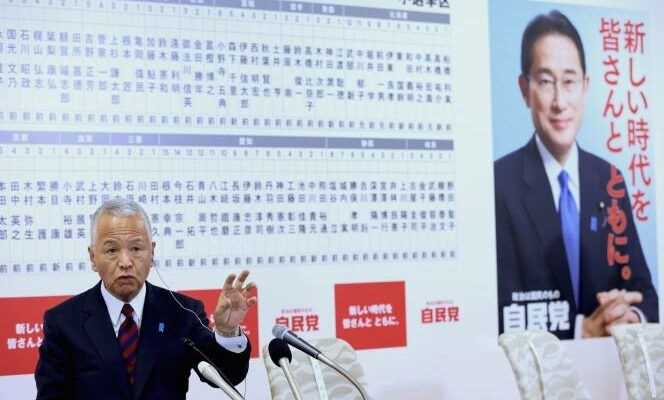The Liberal Democratic Party (PLD) retreats but does not give in. The legislative elections in Japan, Sunday, October 31, ended with a slight sag in the power formation, without depriving it of the majority of the 465 seats in the lower house of parliament. With its ally, the Komei Party, the PLD has secured a “Stable majority” with more than 270 seats. The coalition, however, did not equal the 305 elected members of the outgoing assembly.
Fumio Kishida, the prime minister who took office on October 4 after being elected president of the LDP, welcomed the result, seeing “ a very important testimony of confidence for the government ”. He also took note of the decline observed, “The reflection of the past four years” since the last legislative elections.
The setback also reflects the drop in the support rate of the PLD due to its contested management of the Covid-19 pandemic and its economic consequences. For this election, the party had to manage several close duels and suffer some significant setbacks such as that of the former Minister of the Environment, Nobuteru Ishihara, in Tokyo, or that of Akira Amari in the department of Kanagawa, south of the capital. Mr. Amari is the number two in the party and a centerpiece of the Kishida administration.
The PLD campaigned on a classic conservative agenda, calling for a revision of the pacifist constitution, a doubling of defense spending and a strengthening of alliances to counter the rise of China and the North Korean threat.
On the economic front, Mr. Kishida promised to “To set up a new capitalism allowing a reconstitution of the middle class” and said it was ready to release 30,000 billion yen (227 billion euros) over five years for research and innovation, while maintaining the objective of carbon neutrality by 2050.
Bitter defeat for the opposition
The defeat, on the other hand, is bitter for the opposition because the withdrawal of the PLD has mainly benefited the Restoration Party. This formation concentrated in the metropolis of Osaka obtains more than 30 elected, against 11 in the outgoing assembly. Its right-handed positioning questions its future choices. Officially in opposition, it could ally itself with the PLD.
The other opposition groups managed to unite for this election by bringing together for the first time its major components, the Constitutional and People’s Democratic Parties (PDC and PDP), the Social Democratic Party and the Communist Party of Japan (PCJ ). It presented unique candidates in 75% of the majority electoral districts.
You have 46.35% of this article to read. The rest is for subscribers only.
